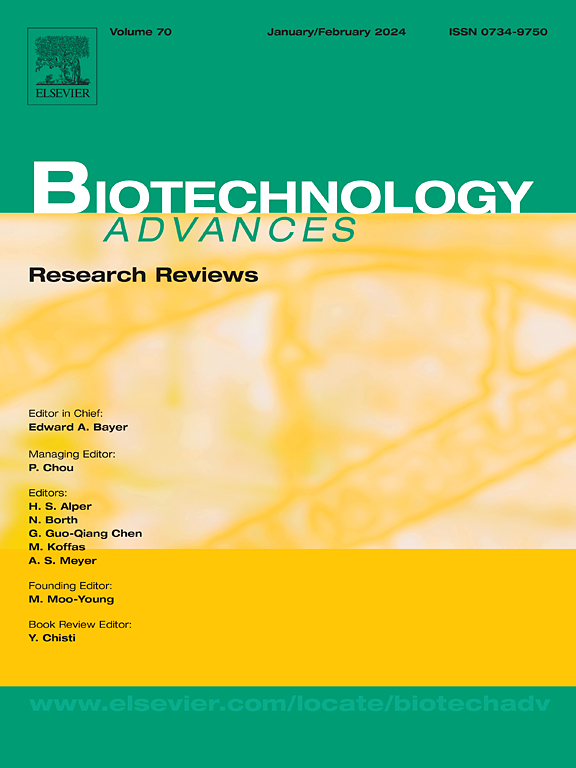植物的易感基因:从分子机制到抗病的生态意义
IF 12.5
1区 工程技术
Q1 BIOTECHNOLOGY & APPLIED MICROBIOLOGY
引用次数: 0
摘要
易感基因(S)是植物与病原体相互作用的关键调控元件,并已通过基因组编辑方法成功靶向许多作物物种的抗病改良,在不同农业系统中取得了实质性进展。然而,越来越多的证据表明,S基因在植物发育、生理稳态和环境适应中同时发挥着重要的功能,这反映了它们在病原体易感性之外的基本生物学必要性。本文综述了S基因的功能分类、基因组编辑结果和进化意义,强调虽然靶向修饰是抗性育种的有力工具,但全面了解其多效性作用对于优化育种结果变得越来越重要。我们提出了一个整合的研究框架,通过将S基因定位为植物-环境网络中的动态调控接口,探索通过有益微生物组管理、激素通路优化和生态知情农业实践调节S基因功能的互补策略,来补充现有的基因组编辑方法。这种多维度的方法可能为未来的作物保护策略提供信息,这些策略将分子精度与生态可持续性相结合。本文章由计算机程序翻译,如有差异,请以英文原文为准。

Susceptibility genes in plants: from molecular mechanisms to ecological implications for disease resistance
Susceptibility (S) genes serve as critical regulatory elements in plant-pathogen interactions and have been successfully targeted through genome editing approaches for disease resistance improvement in numerous crop species, achieving substantial progress across diverse agricultural systems. However, emerging evidence demonstrates that S genes simultaneously fulfill essential functions in plant development, physiological homeostasis, and environmental adaptation, reflecting their fundamental biological indispensability beyond pathogen susceptibility. This review synthesizes current knowledge of the functional classification, genome editing outcomes, and evolutionary significance of S genes, emphasizing that while targeted modification represents a powerful tool for resistance breeding, comprehensive understanding of their pleiotropic roles becomes increasingly important for optimizing breeding outcomes. We propose an integrative research framework that complements existing genome editing approaches by positioning S genes as dynamic regulatory interfaces within plant-environment networks, exploring complementary strategies for modulating S gene function through beneficial microbiome management, hormonal pathway optimization, and ecologically informed agricultural practices. This multidimensional approach may inform future crop protection strategies that integrate molecular precision with ecological sustainability.
求助全文
通过发布文献求助,成功后即可免费获取论文全文。
去求助
来源期刊

Biotechnology advances
工程技术-生物工程与应用微生物
CiteScore
25.50
自引率
2.50%
发文量
167
审稿时长
37 days
期刊介绍:
Biotechnology Advances is a comprehensive review journal that covers all aspects of the multidisciplinary field of biotechnology. The journal focuses on biotechnology principles and their applications in various industries, agriculture, medicine, environmental concerns, and regulatory issues. It publishes authoritative articles that highlight current developments and future trends in the field of biotechnology. The journal invites submissions of manuscripts that are relevant and appropriate. It targets a wide audience, including scientists, engineers, students, instructors, researchers, practitioners, managers, governments, and other stakeholders in the field. Additionally, special issues are published based on selected presentations from recent relevant conferences in collaboration with the organizations hosting those conferences.
 求助内容:
求助内容: 应助结果提醒方式:
应助结果提醒方式:


